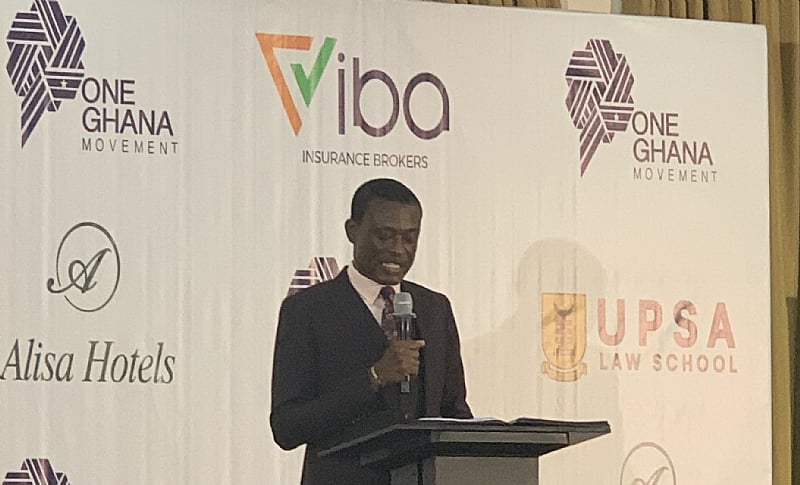Special Prosecutor Kissi Agyebeng has called for the establishment of specialized anti-corruption courts to expedite the handling of corruption cases.
He said the courts should be manned by judges with special training in corruption-related cases to ensure swift and efficient trials.
“We must set up specialized anti-corruption courts manned by especially trained judges in the field to swiftly and efficiently deal with corruption cases,” Mr. Agyebeng said.
He made the remarks during a public lecture in Accra on Friday, February 28, organized by the One Ghana Movement in partnership with the UPSA School of Law to mark this year’s Constitution Day.
The Special Prosecutor also called for the inclusion of the Office of the Special Prosecutor in the constitution to safeguard its independence and protect it from political interference.
“We must write the Office of the Special Prosecutor into the constitution and firm it up,” he said. “Do not dwell on me. My tenure will end at some point and like everyone else, I will leave the scene. The focus should be on building institutions that stand the test of time.”
Mr. Agyebeng stressed that the fight against corruption must be deeply rooted in the country’s laws, making corruption a high-risk and unattractive venture.
“We should transform the constitution by weaving anti-corruption concepts and institutions tightly into its outlook and reach. And right thereupon, build on that framework a robust and pragmatic wave of statutory detail to give firm effect to the constitutional provisions to render corrupt activities high risk and ultra-costly and unattractive enterprises,” he stated.
He further recommended the introduction of anti-corruption studies in basic and secondary schools to instill a culture of integrity among young people.
“We must institute, in our schools, at the basic and secondary levels, curricula in anti-corruption studies intended at instilling an unyielding commitment to combat corruption at every level,” he said.
Mr. Agyebeng urged the Constitutional Review Committee, chaired by Professor H. Kwasi Prempeh, to consider these proposals as part of the ongoing review process.


